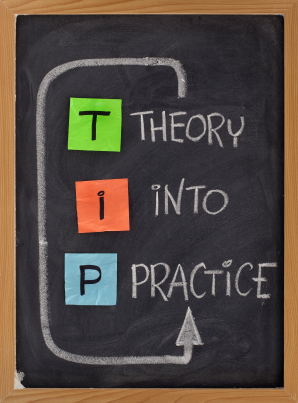Dietitian’s Best Kidney Diet Tips

Several weeks ago I was traveling to a meeting in North Carolina with two other DaVita dietitians. Our conversation led to discussion about what is helpful to patients following a kidney diet. Some people seem to embrace changes and incorporate the diet easier than others, and some kidney patients have long time struggles with adapting to new ways of eating.
Of all diets–weight loss, low cholesterol, gluten-free, etc., we know kidney diets are the most challenging. Most of us do not think about minerals in food, and putting foods into categories of what to limit or avoid and what to eat becomes mind-boggling.
I asked my colleagues to share their best tips and advice on adjusting to and following a kidney diet. Here are their best 10 tips:
- Change your mindset so the diet is not so overwhelming. Instead of looking at the restrictions, realize that almost any food can be worked in. Learn about the amount and frequency and how it impacts you.
- Focus on the issues or problem areas and do not try to change everything at once. For example, if your appetite is not so great and your protein level is too low, give more attention to this rather than all the other diet components.
- Retrain your habits. Identify items that need to be changed and work on making new habits. For example, if you usually order the sausage biscuit with cheese for a fast food breakfast, replace it with an egg on English muffin.
- Realize that eating is a habit. Once those habits are in place we usually don’t make decisions–we act out of habit. Examples of new habits include roasting a turkey breast for sandwiches instead of ham; stocking beverages that are phosphate free so you are not tempted by those with phosphate additives; keeping apples or berries on hand instead of higher potssium banana or canteloupe.
- Ask what you get instead of what your give up. For example, your kidney diet may require more home cooking which can be more nourishing and give you more control over what goes into your body.
- Eat your meals and snacks slower to avoid overeating that adds extra potassium, phosphorus or sodium. Portion control can lead to better sodium, fluid or phosphorus control.
- Be an optimist and focus on the positive. For example if you try foods you never ate before, fix a new recipe, or discover low sodium seasonings you like, you are positively expanding your food choices.
- Eat to your dose. Whether it’s the amount of phosphorus to match what your phosphate binders can bind, or the amount of carbohydrate to match your insulin or other diabetes medication, think about how the foods your choose and amounts you eat work together to keep the balance.
- Savor small amounts of foods that are limited by eating them with mindfulness, thinking about the flavors and enjoying the taste and texture.
- Talk to others–patients, your dietitian and other healthcare team members. Find out what works, what keeps them motivated and what are their personal best kidney diet tips.
Do you have kidney diet tips you would like to share? Add your comments. It may make a positive difference for someone else!
Additional Kidney Diet Resources
Visit DaVita.com and explore these diet and nutrition resources:
DaVita Kidney-Friendly Recipes
This article is for informational purposes only and is not a substitute for medical advice or treatment. Consult your physician and dietitian regarding your specific diagnosis, treatment, diet and health questions.

Recent Comments